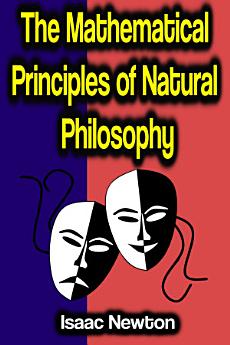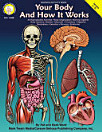The Mathematical Principles of Natural Philosophy
Dez 2021 · Phoemixx Classics Ebooks
E-Book
888
Seiten
family_home
Zulässig
info
reportBewertungen und Rezensionen werden nicht geprüft Weitere Informationen
Über dieses E-Book
The Mathematical Principles of Natural Philosophy Isaac Newton - It was Isaac Newton's Principia that founded the law of universal gravitation on 5th July 1687. It is the same principia that inspired Albert Einstein into formulating the Einstein field equations (the general relativity theory). It is still the same principia, I believe, will lead us to the quantum theory of gravity (Quantum gravity)According to Newtons Principia, the force of gravity governs the movement of bodies in the solar system. It is this simple mathematical law which determines the motion of bodies. The force of gravity accurately predicts the planetary orbits, it was used to put the first man on the moon, it predicts the return of comets, the rotation of galaxies, the solar eclipses, artificial satellites, satellite communications and television, the GPS and interplanetary probes. I almost forgot, it is why NASA was established in the first place.
Autoren-Profil
Sir Isaac Newton, FRS , was an English physicist, mathematician, astronomer, natural philosopher, and alchemist. His Philosophiæ Naturalis Principia Mathematica, published in 1687, is considered to be the most influential book in the history of science. In this work, Newton described universal gravitation and the three laws of motion, laying the groundwork for classical mechanics, which dominated the scientific view of the physical universe for the next three centuries and is the basis for modern engineering. Newton showed that the motions of objects on Earth and of celestial bodies are governed by the same set of natural laws by demonstrating the consistency between Kepler's laws of planetary motion and his theory of gravitation, thus removing the last doubts about heliocentrism and advancing the scientific revolution.In mechanics, Newton enunciated the principles of conservation of momentum and angular momentum. In optics, he invented the reflecting telescope and developed a theory of colour based on the observation that a prism decomposes white light into a visible spectrum. He also formulated an empirical law of cooling and studied the speed of sound.In mathematics, Newton shares the credit with Gottfried Leibniz for the development of the differential and integral calculus. He also demonstrated the generalised binomial theorem, developed the so-called "Newton's method" for approximating the zeroes of a function, and contributed to the study of power series.Newton was also highly religious (though unorthodox), producing more work on Biblical hermeneutics than the natural science he is remembered for today.In a 2005 poll of the Royal Society asking who had the greater effect on the history of science, Newton was deemed much more influential than Albert Einstein.
Dieses E-Book bewerten
Deine Meinung ist gefragt!
Informationen zum Lesen
Smartphones und Tablets
Nachdem du die Google Play Bücher App für Android und iPad/iPhone installiert hast, wird diese automatisch mit deinem Konto synchronisiert, sodass du auch unterwegs online und offline lesen kannst.
Laptops und Computer
Im Webbrowser auf deinem Computer kannst du dir Hörbucher anhören, die du bei Google Play gekauft hast.
E-Reader und andere Geräte
Wenn du Bücher auf E-Ink-Geräten lesen möchtest, beispielsweise auf einem Kobo eReader, lade eine Datei herunter und übertrage sie auf dein Gerät. Eine ausführliche Anleitung zum Übertragen der Dateien auf unterstützte E-Reader findest du in der Hilfe.








